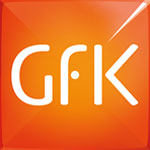Germans expect economic high

The fifth consecutive increase in economic expectations demonstrates impressively that consumers continue to believe in a considerable economic upswing over the next months. However, this is not benefiting income expectations and propensity to buy - which both moved downward. Nevertheless, the level of the overall indictor is very pleasing. In connection with considerable easing on the labour market, the good consumer sentiment will result in further stabilisation of domestic demand.
Economic expectation: another slight upturn
For the fifth consecutive time, there was an increase in the economic expectation indicator. In October 2010, the upturn was 2.5 points. The indicator is now showing 56 points.
Consumers still expect the German economy will continue to recover. In their view, this is backed primarily by the positive trend on the labour market. Thus as early as October, the number of people registered as unemployed should move below the three million mark. The use of reduced working hours has also declined drastically over recent months. Companies also assess the economic situation more positively as is shown by the renewed increase of the ifo Business Climate Index in October.
Income expectations: With downturn
In October, income expectations did not benefit from the positive economic sentiment. With a minus of 9.2 points, the indicator has lost precisely the gains achieved in the previous month. It currently is showing 36 points, as was the case in August.
This decline may be due to reports in recent weeks that the price of electricity is likely to rise sharply. Experts anticipate that the eco-levy to subsidise the generation of solar electricity and which is added to the electricity price will rise sharply. In addition, in view of their tight budget situation, municipalities have announced some considerable increases in fees and charges.
However, overall consumers remain confident in respect to their future financial situation. The positive development on the employment market again allows more scope for collective wage rises. What is more, the moderate level of inflation - currently around 1% - also ensures that purchasing power of income is maintained.
Propensity to buy: good level despite decline
After the increase in the previous month, propensity to buy declined in October. The indicator is now showing 22.5 points. This is 8.2 points less than in the previous month. However, this means propensity to buy remains considerably higher than the long-term average of 0 points.
It is primarily more moderate income prospects which is likely to have driven the slight decline of propensity to buy from what was quite a good level. Despite this setback in October, the outlook for consumer sentiment remains good overall.
Consumer climate: stable development
After 4.9 points for October, the overall indicator forecasts a figure also of 4.9 points for November 2010. This means consumer climate is taking a slight breather in autumn 2010, after the indicator rose four times in succession. In the context of the rather favourable environment from a consumer perspective, the outlook for a further recovery of the consumer climate remains good. Thus the GfK confirms its spending forecast for 2010 which forecasts a rise of up to 0.5% for private consumption.
The survey
The results are an excerpt from the "GfK Consumer Climate MAXX survey, based on approximately 2000 consumer interviews per month which are carried out on behalf of the European Commission. In this report, the indicators are presented graphically, forecast and commented on in detail. It also includes information on the consumers' spending plans in 20 areas of the durable consumer goods, consumer goods and services markets. The GfK Consumer Climate Survey has been conducted since 1980.
The next publication date is 23 November 2010.
Source: GfK

The GfK Association was established in 1934 as a non-profit organization for the promotion of market research. Its membership consists of approximately 600 companies and individuals. The purpose of the Association is to develop innovative research methods in close cooperation with academic institutions, to promote the training and further education of market researchers, to observe the structures and developments in society, the economy and politics that play a key role in private consumption, and to research their effects on consumers. Survey results are made available to the membership. The GfK Association is a shareholder in GfK SE.
Go to: http://www.gfk.com




















